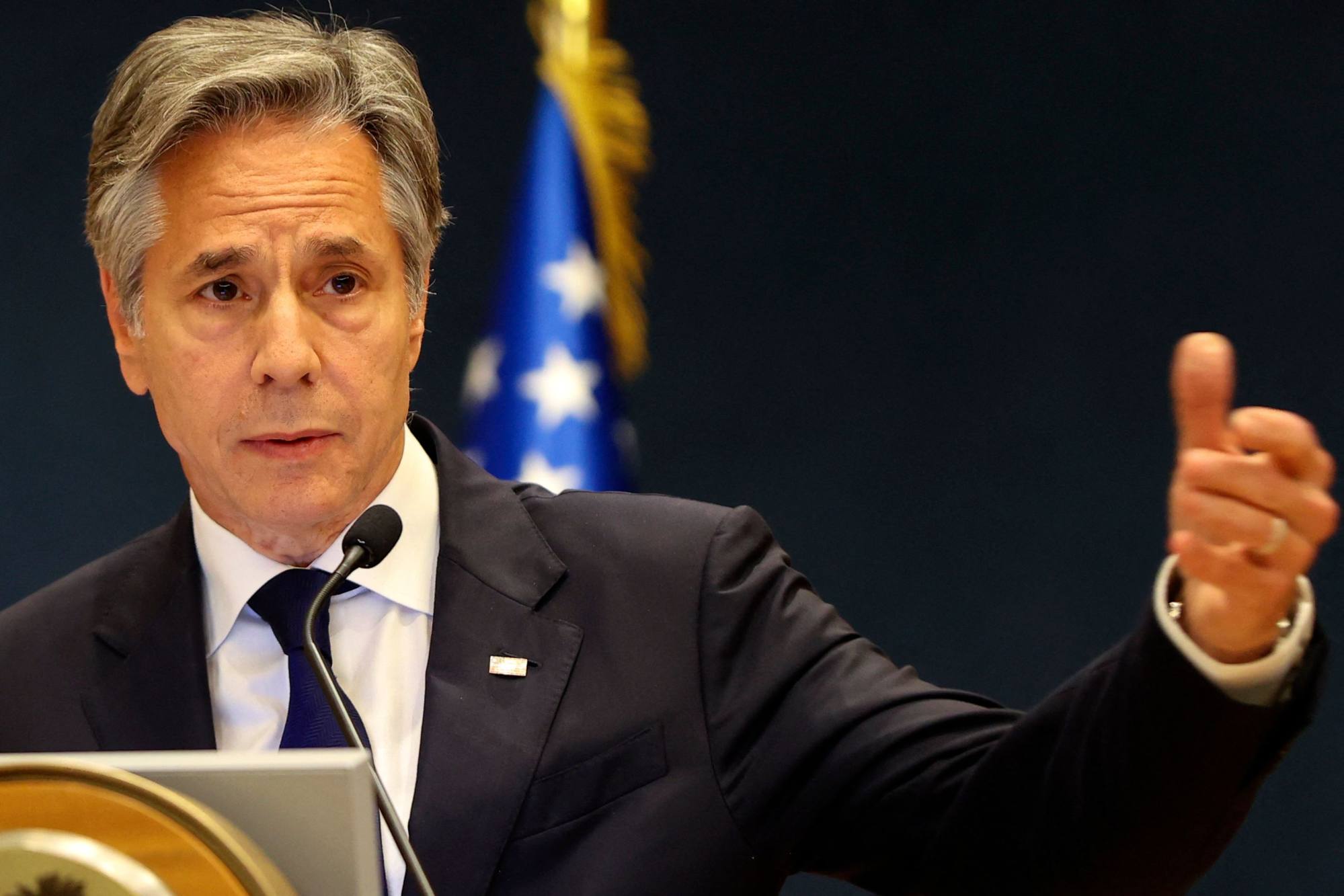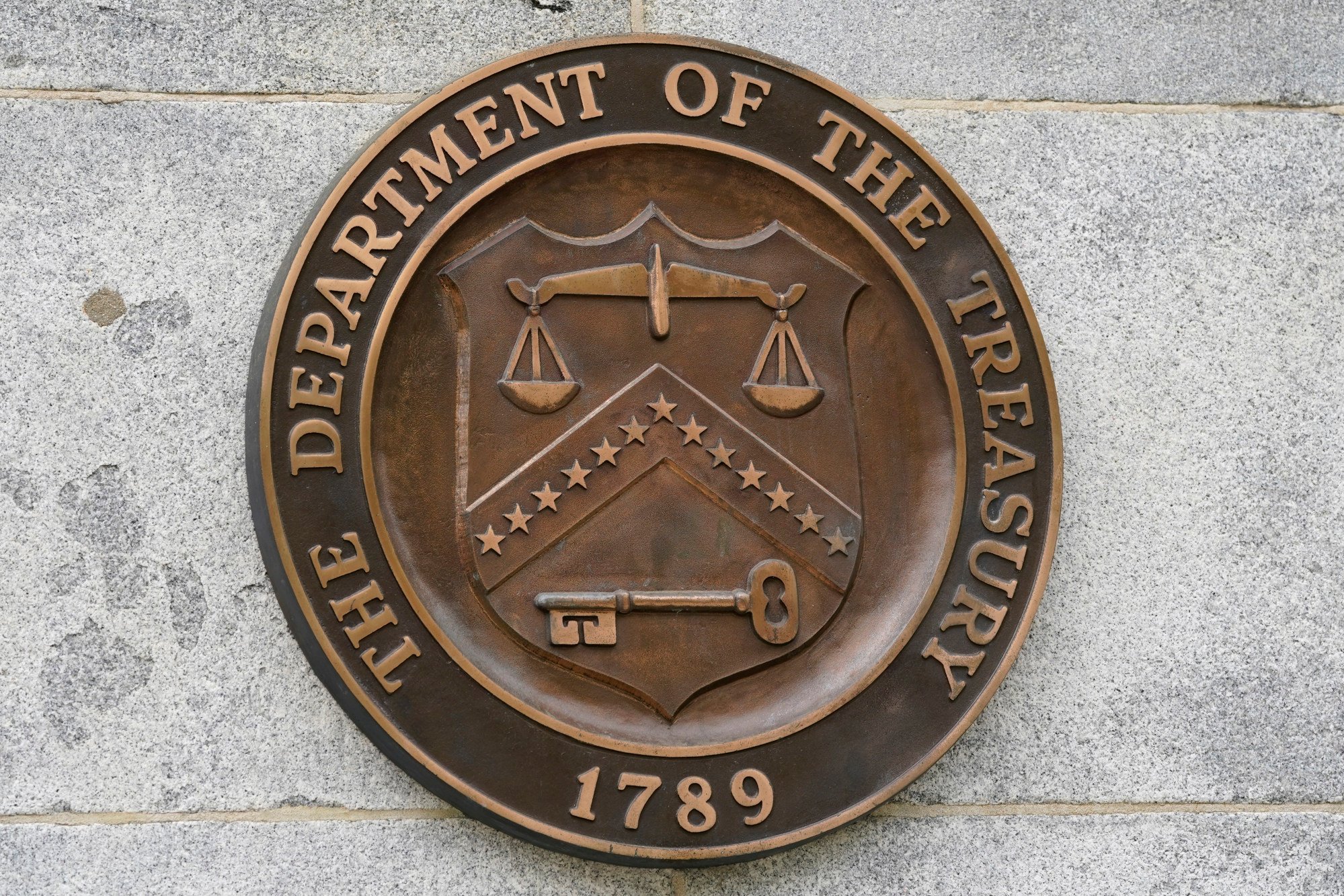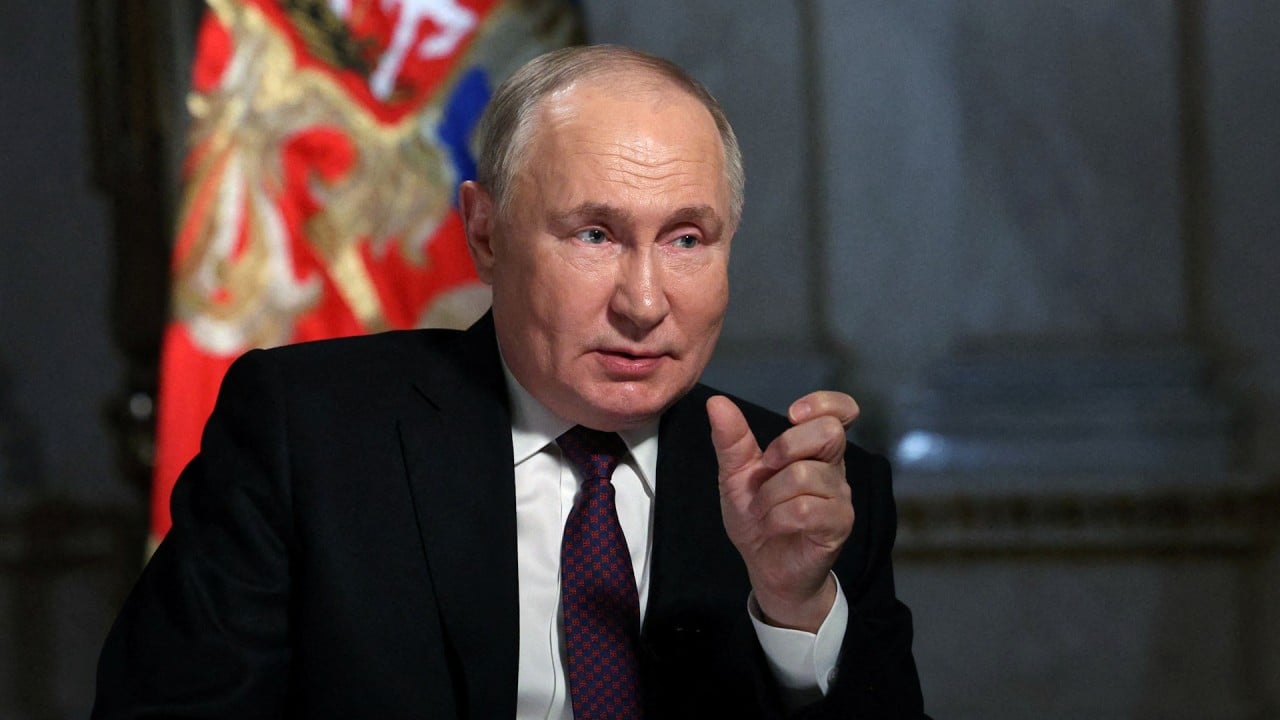“Today’s actions strike at their remaining avenues for international materials and equipment, including their reliance on critical supplies from third countries,” said Treasury Secretary Janet Yellen.
“We are increasing the risk for financial institutions dealing with Russia’s war economy and eliminating paths for evasion, and diminishing Russia’s ability to benefit from access to foreign technology, equipment, software and IT services,” she said.
Moscow’s foreign ministry reacted quickly, saying that the country will respond to the “aggressive” raft of new sanctions.
“As always in such cases, Russia will not leave such aggressive actions unanswered,” foreign ministry spokeswoman Maria Zakharova was quoted as saying by the state TASS news agency.
Asked about the latest US measures, Liu Pengyu, the spokesperson for Beijing’s embassy in Washington, said that China was “committed to promoting talks for peace” and that the country was “not a creator of or a party to the Ukraine crisis”.
“China does not provide weapons to the parties to the conflict and strictly controls the export of dual-use articles, which is widely applauded by the international community,” he said.
“Our normal trade with Russia is done above board. It is consistent with World Trade Organization rules and market principles, and does not target any third party.”
The administration of US President Joe Biden has been signalling that it would step up action against China for its support for the Russian defence industrial base.
US Secretary of State Antony Blinken said that his department and the Treasury were “imposing further costs on Russia” in line with the commitments of Group of 7 leaders, who are set to meet in Italy for their annual summit from Thursday to Saturday.

“The United States remains concerned by the scale and breadth of exports from the People’s Republic of China that supply Russia’s military-industrial base,” he said on Wednesday.
“The department is designating PRC companies providing Russia with a wide range of dual-use goods that fill critical gaps in Russia’s defence production cycle.”
According to a draft statement obtained by Bloomberg, the G7 leaders are expected to urge China to stop enabling and sustaining Russia’s war in Ukraine.
“China’s ongoing support for Russia’s defence industrial base has significant and broad-based security implications,” the news agency quoted from the document, which would be finalised after the heads of Britain, Canada, France, Germany, Italy, Japan and the US meet.
Some US lawmakers have also acted to achieve the same end.
If it becomes law, the legislation would direct the Defence Department to identify export-controlled technologies most at risk of diversion through China and impose a new and stronger nationwide control on them. It would also grant the Commerce Department authority to deny any export license.
Wednesday’s announcement detailed more than a dozen cases, including those in which transnational networks operated to launder gold from a Russian producer and procure materials critical to Russia’s weapons programme.

Describing it as a “complex, multilayered laundering scheme”, the Treasury told of one case where a Russian employee of the country’s largest gold producer worked with a Hong Kong-based associate.
The duo converted payments from the sale of Russian-origin gold into fiat currency and cryptocurrencies through front companies in Hong Kong and the UAE, according to the announcement.
The individuals and companies were designated “for operating or having operated in the metals and mining sector of the Russian Federation economy”, the Treasury said.
In a case of unmanned aircraft systems procurement, the Treasury said a Hong Kong-based company had sent camera lenses, electronic integrated circuits and other components for drones to Russian end users.
Meanwhile, a company in mainland China had offered delivery via its own container trains to various Russian cities, providing components worth more than US$180,000 to entities in Russia, including those supplying equipment to unmanned systems, according to the announcement.
“Russia’s military industrial base uses … an extensive network of Russian and foreign intermediary companies to purchase microelectronics and hi-tech equipment produced abroad,” it said.
In the Treasury notice, many cases involved shipments and supplies of “high-priority items” to Russia, which the US Commerce Department defines as electronic components that “Russia seeks to procure for its weapons programmes”.
Electronic integrated circuits are of “the highest concern”, according to the department, because of “their critical role in the production of advanced Russian precision-guided weapons systems, Russia’s lack of domestic production and limited global manufacturers”.
In one case, the Treasury said that a Russian national had shipped millions of dollars’ worth of electronic integrated circuits and other high-priority technology items to Russia via his network of import-export companies based in Hong Kong, including a firm that he owned.
Additional reporting by Robert Delaney in Washington


